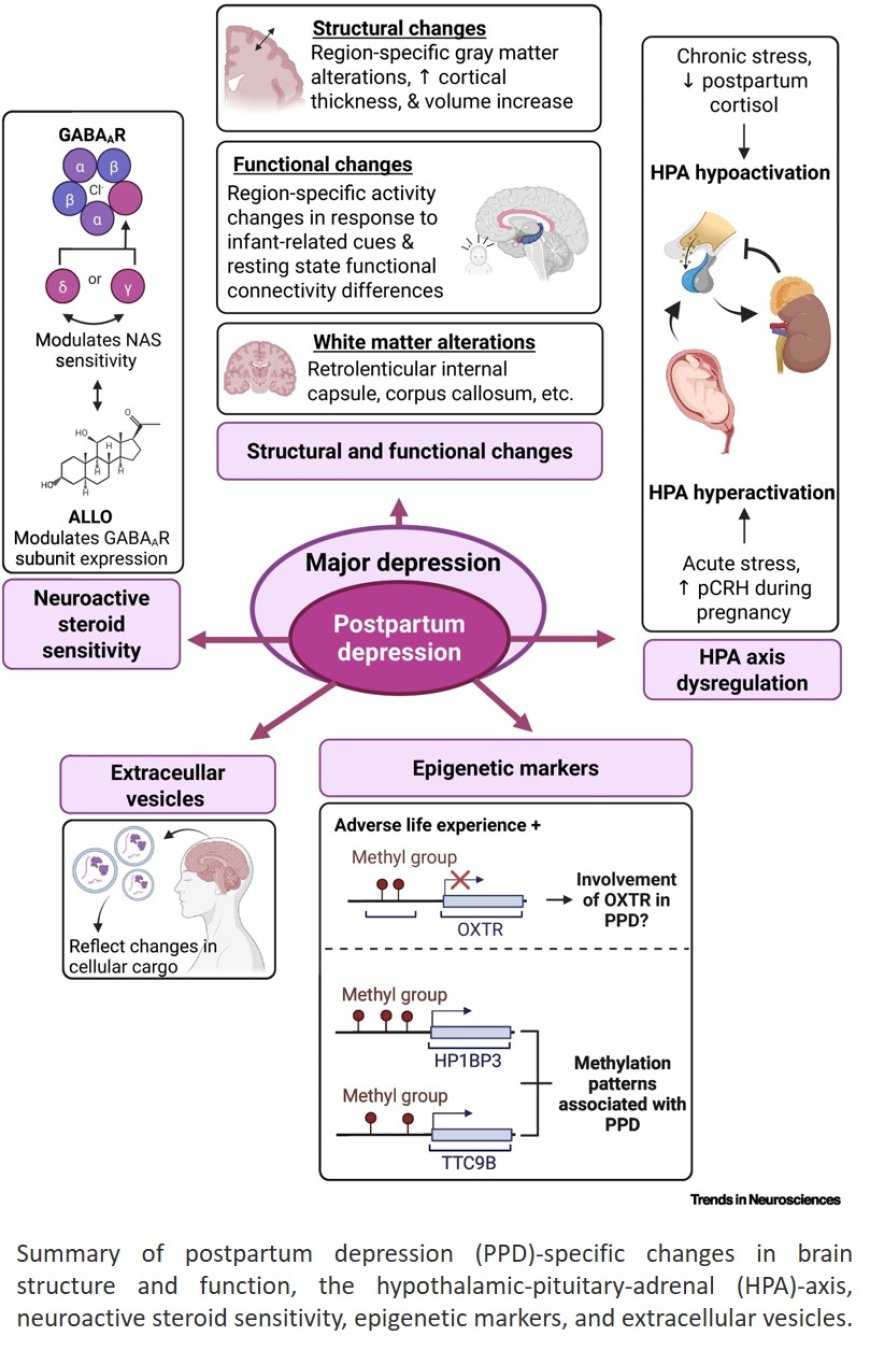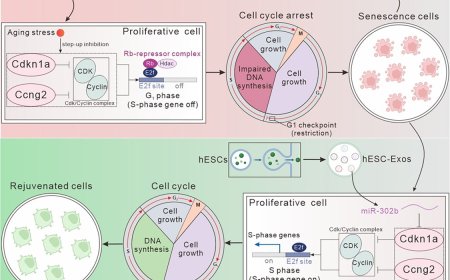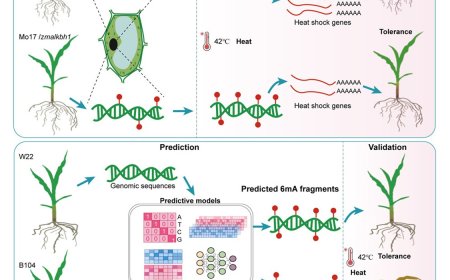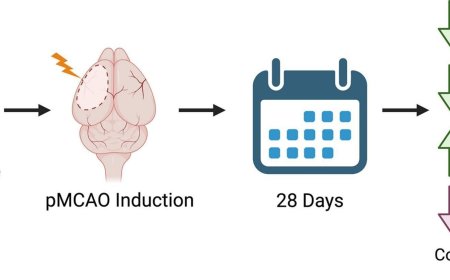The neurobiology of postpartum depression

Postpartum depression (PPD) is the most common complication of pregnancy, but its underlying pathophysiology is largely unknown.
While PPD is thought to be a more biologically homogenous subtype of major depressive disorder (MDD) due to its predictability in onset and associated hormonal shifts, there are a variety of biological systems implicated in PPD pathogenesis.
Alterations in brain structure and function, the HPA-axis, neuroactive steroids (NAS), epigenetic markers, and extracellular vesicles (EVs) have been reported in PPD, and these characteristics appear to be distinct from MDD.
Future research should focus on longitudinal, comprehensive study designs that integrate multiple biological levels of analysis in an effort to improve precision medicine and treatment of both PPD and MDD.
https://www.cell.com/trends/neurosciences/fulltext/S0166-2236(25)00100-6













